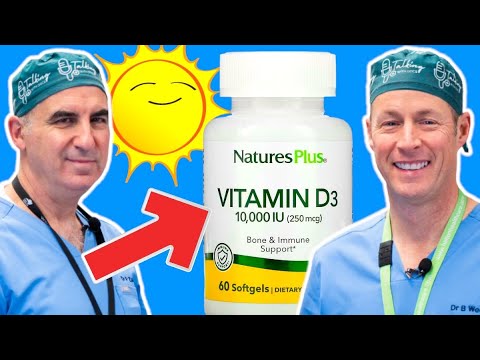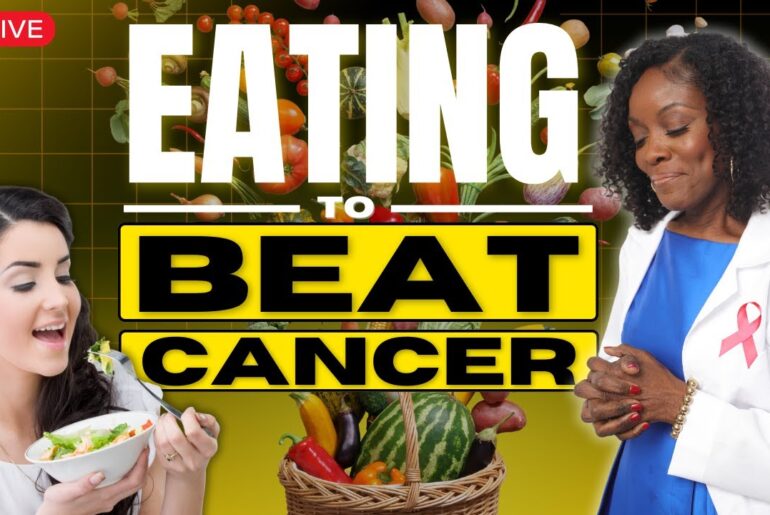💖 Enhance Your Immunity, The Power of 7 Essential Vitamins.
#EnhanceImmunity #Hearthealth #VitalitySolution
Discover the essential vitamins that power your immune system to new heights in the face of everyday challenges. In a world where immune health is paramount, these key nutrients serve as your body’s armor against threats.
1. Vitamin C:
Strengthen your defense with this immune-boosting powerhouse found abundantly in citrus fruits, strawberries, and bell peppers.
2. Vitamin D:
Elevate your immune vigilance with sources like sunlight, fatty fish, and fortified foods to keep infections at bay.
3. Vitamin E:
Arm yourself against oxidative stress with vitamin E from nuts, seeds, and spinach for robust immune function.
4. Vitamin A:
Fortify your immune bastion with vitamin A from animal products and beta-carotene-rich veggies like sweet potatoes and spinach.
5. Vitamin B6:
Fuel your immune resilience with poultry, fish, and vegetables rich in vitamin B6, enhancing your body’s defense mechanisms.
6. Zinc:
Amplify your immune shield by incorporating zinc-rich foods like beef, shellfish, and legumes into your diet.
7. Vitamin B12:
Sustain your immune fortitude with vitamin B12 from animal products or fortified plant-based alternatives, ensuring optimal immune response.
Prioritize these essential vitamins to bolster your immunity, ward off illnesses, and thrive in your day-to-day life. Don’t underestimate the power of a well-nourished immune system.
🎬 Welcome to our curated playlist – a collection of captivating content you won’t want to miss!
💖 Clear Clogged Arteries
👉 https://www.youtube.com/playlist?list=PL8Gxr5NidrFokIa8RpDeat6XEvm9_G9h7
💥 Heart Disease.💔
👉 https://www.youtube.com/playlist?list=PL8Gxr5NidrFq2U7-K7FR_CKjnWEhbAEG9
🔍 Explore related content for additional insights and in-depth perspectives!
⚠️ STOP EATING! We Are SLOWLY Dying Because Of These Foods
💖 HEAL Your Heart With 7 SIMPLE Foods! Incorporate Into Your Diet IMMEDIATELY
👴 EAT NOW! Essential Foods for People Over 50 You Can’t Ignore
💔 Toxins Will FLOOD Your Body If You Eat These 20 DEADLY Foods
👉 https://youtube.com/live/i8Y_iJHjcXc
🌟 Welcome to an incredible journey! May this video fill your day with inspiration, joy, and endless discoveries. Enjoy the ride! 🎥✨
🕒 Timestamps:
00:00 – Introduction
01:32 – Vitamin C.
03:26 – Vitamin D.
05:55 – Vitamin E.
07:35 – Vitamin A.
09:34 – Vitamin B6.
11:21 – Zinc.
13:22 – Vitamin B12.
————————————————————–
Disclaimer: The content provided on the “Vitality Solutions” YouTube channel is for informational purposes only. The information shared is not intended as a substitute for professional medical advice, diagnosis, or treatment. Always seek the advice of your physician or other qualified health provider with any questions you may have regarding a medical condition.
Enhance Your Immunity, The Power of 7 Essential Vitamins. In the hustle and bustle of everyday life, imagine encountering a scenario where someone experiences the vivid and palpable effects of a compromised immune system. Picture the fatigue, the vulnerability, and the emotional toll that comes with recognizing
The telltale signs of immune deficiency. A chance meeting with such a situation can be a stark reminder of the intricate balance our bodies strive to maintain. According to recent statistical data from the United States, the prevalence of immune-related issues has seen a significant increase of 15% over the past five years alone.
Currently, an alarming statistic reveals that 1 in 4 individuals in the U.S. grapple with some form of immune system compromise. In previous videos, we explored the perilous culprits that can wreak havoc on our immune system from within—examples being processed meats like sausages or smoked meats. In this video, we continue our
Journey by unveiling the secrets of seven essential nutrients that are indispensable for ensuring a robust immune system. These are the building blocks your body craves, and overlooking them could compromise your overall well-being. So, stay tuned till the end of the video to ensure you don’t miss out on any invaluable insights.
Let’s dive right in with Vitamin C. 1. Vitamin C. Ensuring an adequate intake of vitamin C is crucial for bolstering our immune system, especially as we age. This essential nutrient plays a pivotal role in enhancing immune function by supporting the production and activity of white blood cells,
Which are vital in fighting off infections and illnesses. Additionally, vitamin C acts as a powerful antioxidant, scavenging harmful free radicals that can compromise immune health. There are various sources of vitamin C-rich foods readily available to incorporate into our daily diet. Citrus fruits such as oranges, grapefruits, and lemons are well-known
For their high vitamin C content, with just one medium-sized orange providing over 70 milligrams of this nutrient, meeting nearly 100% of the recommended daily intake for most adults. Other excellent sources include strawberries (providing approximately 89 milligrams per cup), kiwi (providing about 64 milligrams per fruit),
Bell peppers (providing around 152 milligrams per cup, chopped), broccoli (providing roughly 81 milligrams per cup, chopped), and tomatoes (providing about 23 milligrams per medium-sized tomato). The recommended daily intake of vitamin C varies depending on factors such as age, gender, and overall health status.
For adults, the recommended dietary allowance (RDA) of vitamin C is 75 milligrams for women and 90 milligrams for men. However, for individuals aged 65 and older, the RDA increases to 90 milligrams for women and 105 milligrams for men to account for age-related changes in absorption and metabolism. Moving on to another essential vitamin,
Have you ever wondered how Vitamin D impacts your immune system? 2. Vitamin D. Vitamin D is pivotal for a robust immune system, particularly as we age. Studies indicate that maintaining sufficient levels of vitamin D can bolster immune function, potentially reducing the risk of
Respiratory infections by as much as 50%. For older adults in the United States, where nearly 42% are deficient in vitamin D, ensuring adequate intake becomes paramount. Sunlight exposure remains a primary source of vitamin D synthesis in the body. However, factors such as geographical location and skin pigmentation
Significantly impact its effectiveness. For instance, individuals with darker skin may require up to six times more sun exposure to produce the same amount of vitamin D as those with lighter skin. On average, just 10-30 minutes of midday sunlight exposure on the face, arms, and legs twice a week can provide
Sufficient vitamin D synthesis for most people. However, this can vary depending on factors like time of year, cloud cover, and air pollution. Despite sunlight’s importance, dietary sources are crucial, especially for older adults who may have limited sun exposure. Fatty fish like salmon, tuna, and mackerel are excellent sources of vitamin D, with a
3.5-ounce serving providing around 300-600 IU. Additionally, fortified foods such as milk, orange juice, and breakfast cereals contribute significantly to vitamin D intake. For instance, just one cup of fortified milk can provide up to 120 IU of vitamin D, while a bowl
Of fortified cereal can offer around 40 IU. To meet recommended daily intake levels, the National Institutes of Health (NIH) suggest that adults up to age 70 aim for 600 international units (IU) of vitamin D daily, while those over 70 should increase their intake to 800 IU.
However, recent research suggests that even higher doses may be necessary to maintain optimal levels, with some experts recommending up to 2,000 IU per day for older adults. Moving on to the benefits of Vitamin E, did you know that this essential nutrient acts
As a powerful antioxidant, protecting your cells from damage caused by free radicals? 3. Vitamin E. Vitamin E, a potent antioxidant, plays a vital role in supporting immune function by protecting cells from oxidative stress. Research suggests that maintaining adequate levels of vitamin E is crucial for enhancing
Immune response, particularly in older adults who may be more susceptible to infections. When it comes to dietary sources, nuts and seeds emerge as rich reservoirs of vitamin E. For instance, just one ounce of almonds provides approximately 7.3 milligrams of vitamin E, while an equivalent serving of sunflower seeds delivers around 7.4 milligrams.
Similarly, incorporating wheat germ oil into your diet can offer a hefty dose of vitamin E, with a single tablespoon providing a whopping 20.3 milligrams. Other notable sources of vitamin E include spinach, a leafy green powerhouse, boasting approximately 1.9 milligrams per cooked cup, and fortified cereals,
Which can offer anywhere from 1.8 to 12 milligrams per serving, depending on the brand and type. In terms of recommended daily intake, adult males and females aged 14 years and older are advised to aim for 15 milligrams (or 22.4 international units) of vitamin E per day.
However, it’s worth noting that specific requirements may vary based on factors such as age, gender, and individual health conditions. Moving on to the next essential vitamin, Vitamin A plays a crucial role in supporting immune function. Did you know what foods are rich in Vitamin A? 4. Vitamin A. Vitamin A is indispensable
For immune system regulation, aiding in the production and function of white blood cells, which defend the body against infections. It also fortifies mucosal barriers, like those in the respiratory and gastrointestinal tracts, further enhancing immunity. When it comes to dietary sources, animal-based foods are rich in preformed vitamin A.
A single 3-ounce serving of cooked beef liver provides a staggering 6,582 micrograms of retinol activity equivalents (RAE), surpassing the daily requirement for most adults. Other animal sources include 1 large egg (147 mcg RAE), 1 cup of whole milk (112 mcg RAE),
And 3 ounces of cooked salmon (59 mcg RAE). Alternatively, plant-based foods offer beta-carotene, a precursor the body converts into vitamin A. A half-cup serving of cooked sweet potatoes contains 961 micrograms of beta-carotene, fulfilling the daily needs of many individuals. Other rich sources include 1 medium carrot (509
Mcg beta-carotene), 1 cup of cooked spinach (943 mcg beta-carotene), and 1 medium red bell pepper (314 mcg beta-carotene). For adults, the recommended daily intake of vitamin A is approximately 900 micrograms of RAE for men and 700 micrograms of RAE for women.
However, excessive intake can lead to toxicity. The tolerable upper intake level (UL) for adults is set at 3,000 micrograms of RAE per day, highlighting the importance of moderation. Moving on to Vitamin B6, did you know that this essential nutrient plays a crucial role in supporting your immune system? 5. Vitamin B6.
Vitamin B6, also known as pyridoxine, is an essential nutrient that contributes significantly to immune function, making it vital for maintaining overall health and well-being. Studies have shown that adequate intake of vitamin B6 can enhance immune response, aiding the body
In its defense against infections and illnesses. Foods rich in vitamin B6 include various poultry options, such as chicken breast (0.5 mg per 100 grams) and turkey (0.7 mg per 100 grams). Fish like tuna (0.9 mg per 100 grams) and salmon (0.5 mg per 100 grams) are also excellent sources.
Additionally, vegetables such as spinach (0.4 mg per 100 grams), potatoes (0.3 mg per 100 grams), and bananas (0.4 mg per 100 grams) are abundant in this essential nutrient. The recommended daily intake of vitamin B6 varies based on age and gender. For adults aged 50 and below, the recommended daily intake is
1.3 milligrams for both males and females. However, for adults over 50, the recommended intake slightly increases to 1.7 milligrams for males and 1.5 milligrams for females. Pregnant women require higher amounts, with a recommended intake of 1.9 milligrams, while breastfeeding women should aim for 2.0 milligrams per day.
Moving on to another crucial nutrient, Zinc, have you ever wondered about its role in boosting immunity? 6. Zinc. Zinc is indispensable for bolstering immune health, a critical aspect of overall well-being, especially as we age. This mineral is integral to numerous cellular processes that fortify the body’s defenses against pathogens like viruses and bacteria.
Incorporating zinc-rich foods into your diet is essential. For example, a 3-ounce serving of beef provides approximately 7 milligrams of zinc, while a single oyster contains around 5 milligrams. Other excellent dietary sources include shellfish, legumes, nuts, seeds, and dairy products. The recommended daily intake (RDA) of zinc
Varies by age and gender. Adult men should aim for 11 milligrams per day, while adult women need 8 milligrams. However, individuals over 50 may require slightly higher amounts due to potential changes in absorption and metabolism. For adults over 50, the RDA for men increases to 11 milligrams and for women to 8 milligrams.
Not meeting these requirements can lead to zinc deficiency, which may compromise immune function and overall health. Symptoms of deficiency include impaired wound healing, frequent infections, and decreased sense of taste and smell. To ensure sufficient zinc intake, consider these numbers: a cup of cooked
Chickpeas provides about 2.5 milligrams, a handful of almonds offers around 0.9 milligrams, and a cup of low-fat yogurt contains approximately 1.7 milligrams. By incorporating these foods into your diet regularly, you can help maintain optimal zinc levels and support your immune system’s ability to combat infections effectively.
Moving on to the topic of Vitamin B12, did you know that this essential nutrient plays a crucial role in maintaining nerve function and aiding in the production of DNA? 7. Vitamin B12. When it comes to immune support, Vitamin B12 is a key player. It aids in the formation and function
Of white blood cells, which are the body’s defenders against infections. Studies have shown that inadequate levels of vitamin B12 can compromise the immune response, leaving individuals more susceptible to illnesses. For instance, research published in the American Journal of Clinical Nutrition found that individuals with
Lower levels of vitamin B12 were at a higher risk of experiencing immune system deficiencies. Furthermore, adequate vitamin B12 levels are vital for the production of red blood cells, which transport oxygen throughout the body. Without enough vitamin B12, red blood cell
Synthesis can be impaired, leading to anemia. Anemia can cause symptoms such as fatigue, weakness, and shortness of breath, significantly impacting daily life. According to the Centers for Disease Control and Prevention (CDC), approximately 6% of adults aged 60 and older are affected by vitamin B12 deficiency anemia.
Where can we obtain this essential nutrient? The primary dietary sources of vitamin B12 are animal-derived foods such as meat, fish, eggs, and dairy products. For those adhering to a vegetarian or vegan lifestyle, obtaining enough vitamin B12 can be more challenging. However, fortified foods like breakfast cereals,
Plant-based milk alternatives, and nutritional yeast can serve as viable sources of this vitamin. According to the National Health and Nutrition Examination Survey (NHANES), approximately 1 in 10 adults over the age of 50 in the United States are deficient in vitamin B12, with vegetarians and vegans being at a higher risk.
Let’s delve into the specifics of recommended daily intake. According to the National Institutes of Health (NIH), the recommended daily allowance (RDA) of vitamin B12 for adults aged 51 and older is 2.4 micrograms. Interestingly, the ability to absorb vitamin B12 decreases with age, making it even more crucial
For older adults to ensure adequate intake. The Linus Pauling Institute reports that adults over the age of 50 may require higher doses of vitamin B12 due to decreased absorption efficiency. If you found the content helpful, don’t forget to like, share, and subscribe so I can continue to have the motivation to create
Valuable content that helps everyone. Thank you very much. In summary, your body’s ability to ward off illnesses and maintain overall health hinges greatly on these vital nutrients. Ignoring this crucial aspect of well-being puts you at risk of weakened defenses against pathogens, heightened susceptibility to
Infections, and a compromised immune system. The ramifications of disregarding such a fundamental aspect of health could be severe, potentially resulting in prolonged illness, decreased quality of life, and even life-threatening conditions. Therefore, it is imperative to prioritize the nourishment of your immune system through
Adequate intake of these essential vitamins for robust immunity and optimal health.



![Why MOST Take Calcium & Vitamin D Wrong! [2024 Studies Update]](https://www.vitaminrush.com/wp-content/uploads/2024/04/1714233431_maxresdefault-770x515.jpg)


